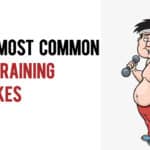Fitness fans are constantly striving to beat their personal bests and take their workouts to the next level. If you want to get faster, fitter and stronger; you need the right vitamins and minerals in your body.

Did you know that various supplements can help strengthen bones, build muscle, prevent injury, and aid recovery? Whether you’re into cardio, resistance training or both, you could be missing out on more efficient training if you don’t know which vitamins and minerals your body needs to push itself during exercise.
There are steps you can take to ensure your body has the nutrients it needs to enhance your workout, reduce risk and boost recovery. The importance of nutrition should not be underestimated, so check out how the following vitamins and minerals can help you push harder in your next workout session.
Nutrients To Enhance Your Workout Efficiency
1. Vitamin D
A fracture is one of the worst injuries anyone into sport and fitness can suffer, as it forces you to stop training for potentially several weeks until the breakage heals. Unfortunately, about half of all adults in the UK are thought to have a deficiency in vitamin D, according to research by hghplaza — mainly due to lack of sunshine.
Although calcium is needed to boost bone strength, vitamin D3 is vital to helping your body absorb calcium in time for your next workout. If you don’t get enough vitamin D over time, your body might start drawing calcium out of your bones, which increases your chance of a fracture. Taking vitamin D3 supplements is crucial to delivering the amount of nutrition your body needs to prevent bone and muscle weakness.
2. Omega 3
We all feel a bit sore and tired after a hard workout, but do you feel this has become steadily worse lately? If so, or as a preventative action, you need to make sure you’re taking the right nutrients to keep your muscles safe and ready to go next time.
To help protect your joints, which take a lot of strain during exercises like running or heavy lifting, we recommend taking Omega 3 supplements. Omega 3 is an essential fatty acid that helps to protect against injury and improve recovery rates. Ingesting an omega 3 supplement can both prevent and alleviate strain injuries by keeping your joints and tissues well lubricated and reducing any inflammation. Another benefit of Omega 3 is that it can boost your body’s energy supply for a longer and more effective session. Daily supplementation with a high-quality fish oil, such as Bio-Fish Oil, is recommended for most athletes.
3. Iron
The deliverance of oxygen to your muscles is critical to an efficient and achievable workout. Iron is responsible for transporting oxygen to your cells and removing carbon dioxide, so how well you recover between sets or sprints relies on how efficient your aerobic system is — and iron is a major part of providing adequate oxygen to working muscles. Sports anemia, a condition that brings on tiredness during training, can also be prevented by taking iron supplements.
4. Coenzyme Q10
If you’re looking for supplements that provide a boost of energy when you need it most at the gym, there’s another option apart from iron. All our cells need a vitamin-like substance called coenzyme Q10. Some of this is found in food but most is produced within our bodies. However, the challenge is that our natural Q10 levels decline from our mid-twenties onwards.
This means that a coenzyme Q10 deficiency can leave your muscles feeling tired and weak, increasing your chances of injury. Taking a Q10 supplement offers the potential to boost your energy levels and push you to the next level of your work-out regime.
5. Calcium and magnesium
As we mentioned, a breakage can cause you to miss training for weeks at a time. Therefore, it’s essential you take the necessary steps to fortify the 206 bones and 200 connecting joints that make up the human skeleton.
One of the most effective ways to do this is by taking calcium and magnesium supplements each day. We recommend choosing one with the hydroxide acetate and carbonate forms of magnesium, as they are best absorbed by your body. Magnesium works in sync with calcium, so it’s important to achieve the right balance of these minerals if you want to capitalize on their benefits.
6. Vitamin E
Many of us associate vitamin E with nails, hair and skin — not necessarily with workouts, weight-lifting and HIIT training. However, this is an excellent supplement to take as part of your fitness-focused diet. Vitamin E helps blood flow around the body, delivering red blood cells where they’re needed to help with each muscle contraction during intense cardio and resistance training.
If you’re concerned about recovery rates and feel that they’re preventing you from working out as often as you like, vitamin E has been proven to aid tissue recovery that has been damaged during heavy exercise sessions. Plus, it is commonly used by medical professionals to help people with muscle conditions including arthritis and cramp. On top of these pros, vitamin E is an antioxidant, which means it promotes muscle mass by reducing the amount of harmful free radicals in your system that hinder tissue growth.
7. Vitamin C
Less serious than a bone breakage, but still able to adversely affect our workouts, is a pulled muscle or tendon. Not only are these painful, but they also harm our ability to lift and move at the same rate. Vitamin C is essential for maintaining healthy connective tissue across all your body’s cartilage and tendons, and helps alleviate muscle soreness for a smoother, less painful work-out. Even better, vitamin C improves recovery rates and reduces the production of cortisol. This hormone is a headache for people who want to keep fit, as it:
- Interferes with the transportation of nutrients to muscles.
- Lowers the speed of muscle recovery.
- Stores extra fat around your stomach.
- Uses your muscles to create its own energy.
MSM and silica
Taking the supplements MSM and silica are popular strategies adopted by professional athletes, as these nutrients can help boost the time it takes your nerves and muscles to recover. According to a study carried out by the UCLA School of Medicine, 58% of athletes taking MSM for an injury reported a recovery compared to only 33% from a placebo group.
Although these are found in various foods, the most efficient and targeted way to get them into your body so that they can start to help your exercise sessions is via supplements. MSM is present in fruit, vegetables and meat, while silica is plant-based and found in unrefined cereals and rice. But remember, much of these nutrients is lost during food processing,
Each of these above supplements are extremely effective at improving your workouts. Browse which ones work best for you and start incorporating them into your diet.


